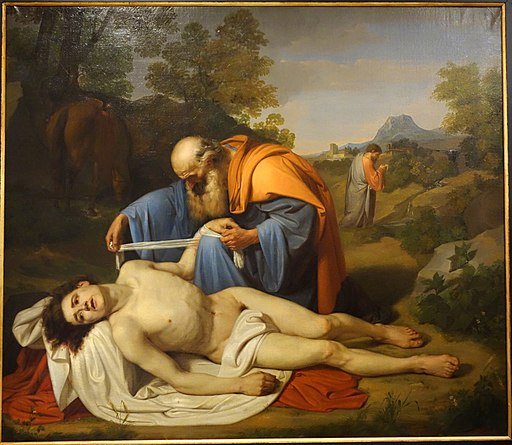Pope Francis Condemns Those Who Ignore Sickness
Image by Luigi Sciallero.
In his address for the Thirty-First World Day of the Sick, a day to recognize the spiritual significance of sickness for our lives, Pope Francis condemns throwaway culture for violating the dignity of the sick and those in crisis by refusing to reflect on their condition, which often is caused by the economic and political structures of modern society.
Where the world sees only weakness, Christians see the intimate mystery of the human person. For this reason, our recognition of the common experience of sickness is an existential aspect of the human condition and indicates our shared humanity. Each response to sickness reveals “whether we are truly companions on the journey, or merely individuals on the same path.” The suffering of Christ, as Francis explains, clearly demonstrates God’s desire to be a companion to the sick. This accompaniment invites all to “reflect on the fact that it is especially through the experiences of vulnerability and illness that we can learn to walk together according to the style of God, which is closeness, compassion, and tenderness.”
Referencing the parable of the Good Samaritan, the Pope explains not only that we must walk with others on their journey of illness, but that no one may avert their gaze from sickness without violating human dignity. Francis expands upon this point, denouncing throwaway culture with an apt reference to Ezekiel, which is as relevant to to secular institutions today as it was to the failing religious institutions of Israel’s past: “You eat the fat, you clothe yourselves with the wool, you slaughter the fatlings; but you do not feed the sheep. You have not strengthened the weak, you have not healed the sick, you have not bound up the injured, you have not brought back the strayed, you have not sought the lost, but with force and harshness you have ruled them” (34:3–4).
Recalling Fratelli tutti, Francis laments that it is increasingly difficult “to distinguish the assaults on human life and dignity that arise from natural causes from those caused by injustice and violence.” Inequalities spill over from the weaknesses of our human institutions into day-to-day life, from the artificial into the natural. Sadly, an increasing number of studies strongly suggest intricate causal connections between natural sickness and modern culture. A heart attack, for example, does not simply result from bodily weakness anymore, but in many cases makes a statement about a lifestyle and ideology hidden within.
Observations like this illustrate that the modern world is a world of contradictions. On the one hand, it fabricates techniques and technologies to exterminate sickness. On the other hand, it turns its face from the sickness created by these techniques and technologies. Opiate addiction caused by an overprescription of pain medication provides a poignant example. Tragically, the modern world is built upon institutions driven by social nosophobia, an ideology to shy from sickness at any cost that leaves many people “rarely prepared for illness.” Frightened by the mere idea of sickness, Francis explains, people cannot make sense of their “moments of weakness” and often feel as if they “should abandon others in order to avoid becoming a burden.” Consequently, then, fear of sickness fuels a throwaway culture. Sadly, the economic and political structures of modern culture shun not only the sick but also those with medical conditions like pregnancy that can be burdensome but are not actually illnesses. Instead of creating policies to support the sick and those in crisis, institutions turn their faces toward easy, profitable solutions.
The Pope tempers his criticism by expressing gratitude “for those who work each day in the fields of healthcare and research.” Although many institutions neglect the sick, many instances of care nevertheless shine through the neglect. Francis mentions heroism in the face of the COVID-19 pandemic as an immediate example. However, he also quickly points out that heroism must not be confused with the fullness of genuine care, and gratitude for heroism “needs to be matched by actively seeking, in every country, strategies and resources in order to guarantee each person’s fundamental right to basic and decent healthcare.”
Ultimately, genuine care for the sick necessarily includes the willingness to pause and see the dignity of the sick identifiable precisely in their sickness. Only by pausing in gratitude to look at the sick as did the Good Samaritan, the Pope notes, can a culture and its institutions approach them, heal them, and raise them up.
Colten Maertens-Pizzo works for the Archdiocese of Chicago Catholic School System.

